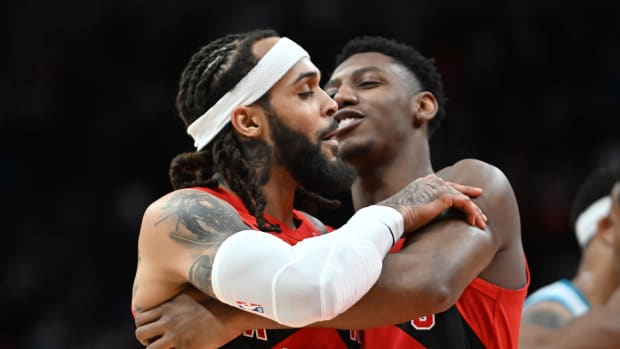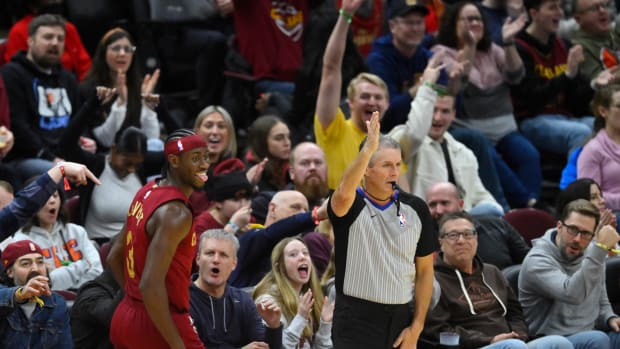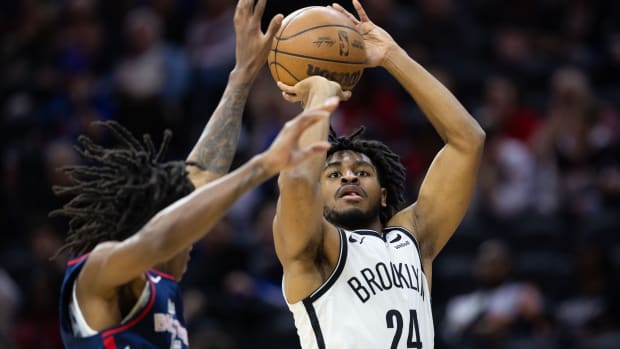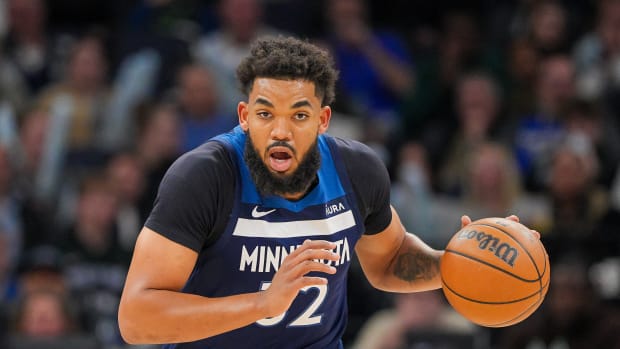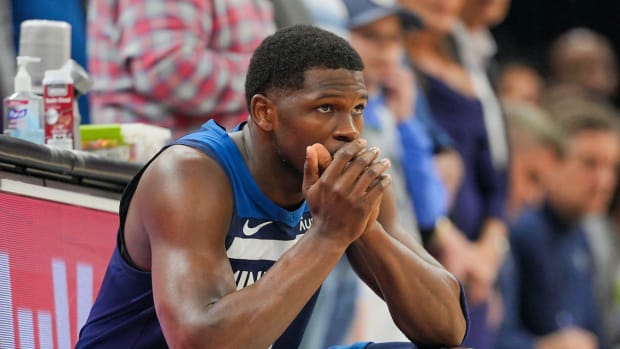East Playoff Window Has Never Been More Open
Every passing year in the NBA brings some measure of reinvention. It’s what makes the sporting world one worth living in; the cycling of good teams and bad freshens dynamics that should be stale. Incoming talent makes its way through the basketball ranks to shift the balance of power. Every dynasty the league has ever seen is eventually reduced to dust, and every luckless lottery team eventually finds its way back to its feet. The only constant is perpetual change.
As it looks now, that change seems to have gotten the better of the Eastern Conference. So many of the compelling threads going into next season involve the cannibalization of conferences. Paul George, the second-best player in the East, found his way to the Thunder. Denver landed the star it has long coveted by plucking Paul Millsap out of Atlanta, confirming the Hawks’ descent. The fulfillment of years of trade rumor finally saw Jimmy Butler shipped out of Chicago—and into Minneapolis. Toronto lost important contributors that now work for teams aiming to challenge Golden State. Carmelo Anthony, too, seems poised for a move West, and the most loaded suitors in the Kyrie Irving sweepstakes appear to be those across conferences.
Kyrie Irving Earned the Right to Play Outside of LeBron's Shadow
From that drain comes opportunity. Of the eight teams to qualify for the playoffs in the East last season, at least three—the Hawks, Pacers, and Bulls—will sink out of contention. The door has never been more open for the resurgent Heat, the actualized Sixers, the perpetually borderline Hornets, or the burden-of-proof Pistons. Each of those teams has positioned itself to make an honest run at filling the playoff vacuum. That the overall talent pool in the East has weakened doesn’t change the fact that competition is strictly relative; East teams will play the majority of their schedules amongst themselves, inflating their win totals and striving for playoff spots even as better teams in the West are edged out by force.
The beauty of the NBA, however, is that intrigue is rarely reserved for better teams alone. Organizations like Charlotte, Detroit, and have calibrated their rosters to compete for this very kind of opportunity. There are implicit stakes in that—an immediate referendum on what it means for a middling team to trade for Dwight Howard; or on the viability of Andre Drummond and Reggie Jackson as lead creators; or on the path of a team that made the most of its talent last season to redouble its efforts with a similar core.
The Hornets, Heat, and Pistons, in particular, have tried to use adequacy as a stepping stone. They’ve taken their lumps in season after season in the pursuit of incremental progress. This year they’ll have to hold off a Process-infused Sixers team that many in and around the league characterized as an affront to its values. Now it boasts Joel Embiid, Dario Saric, the newly signed J.J. Redick, and the No. 1 picks in the last two NBA drafts. Relitigating Philadelphia’s decisions over the past few seasons isn’t as important as its undeniable present, yet there’s something sort of rich about these young Sixers matching up favorably against the exact sort of mediocrity the organization tried to avoid.
Milwaukee sits at a middle. What was a 42-win team last year behind Giannis Antetokounmpo looks to be a better one with Antetokounmpo, a healthy Khris Middleton, and whatever Jabari Parker is able to provide. If anything, the Bucks have more upward mobility than downward; a superstar like Giannis separates Milwaukee from so much of the conference on his own, and the 22-year-old likely has another leap to his game. Most of the players around him are either young or young enough. There is room to grow there, collectively, no matter the imperfect fit of the roster. A breakthrough into the East’s top four might just require a catalyzing act: an injury, a trade, a meltdown.
Absent that, teams like the Wizards and Raptors will be tough to catch. The top of the East seems to have stratified in that way. Cleveland, until we hear otherwise, remains the conference’s gatekeeper. LeBron James’s greatness is prohibitive, even without Irving. Boston is the closest thing the East has to realistic competition, in part because Gordon Hayward changes the complexion of the team the Cavs bullied en route to the Finals. When tasked with measuring up against Cleveland, adding one of the best two-way wings in the league can only help. Removing Irving from the mix, too, could shake something loose; for all Irving’s flaws as a player, he demands address and cross-matching out of the simple reality that Isaiah Thomas cannot guard him. If he moves on from the Cavs as is his wish, Cleveland’s lineup could be restructured in a way that tilts certain factors toward Boston.
The Celtics, even with Hayward, need them. So many conditional elements would have to break in Boston’s favor for LeBron to fall short of his eighth straight Finals, from the development of Jaylen Brown to the long-range accuracy of some of the Celtics’ streakier shooters. Yet Hayward at least opens up the dynamic between the two teams to the point of discussion. His offense is that varied and his defense that valuable.
Derrick Rose Is the Cavaliers’ Latest Low-Impact Signing
This is rough news for both the Wizards and Raptors, who won 100 games between them last season. Washington’s reserves impose a glass ceiling. For as good as John Wall, Bradley Beal, and Otto Porter clearly are, their best efforts last season were often undone in just a few minutes of subpar reserve play. Tim Frazier, Mike Scott, Jodie Meeks, and a healthier Ian Mahinmi are no real answer. Toronto has more options but a disheartening track record against Cleveland, specifically. Their best hope comes through upheaval; if Irving’s trade demand forces any sort of misstep, the Raptors might have the talent and continuity to take advantage. If not, the losses of Patrick Patterson, DeMarre Carroll, P.J. Tucker, and Cory Joseph to a financial crunch will have only put more distance between the Cavs and the would-be rival they dispatched easily from the last two postseasons.
The East on the whole waits for that resolution. For all the money committed and players moved this summer, there can be no accurate sense of this particular conference hierarchy until the Cavs either make peace with Irving or trade him. Such is their hold on the top of the heap, and the reason why their biggest challengers have held on to their solid, increasingly expensive cores with fingers crossed.































